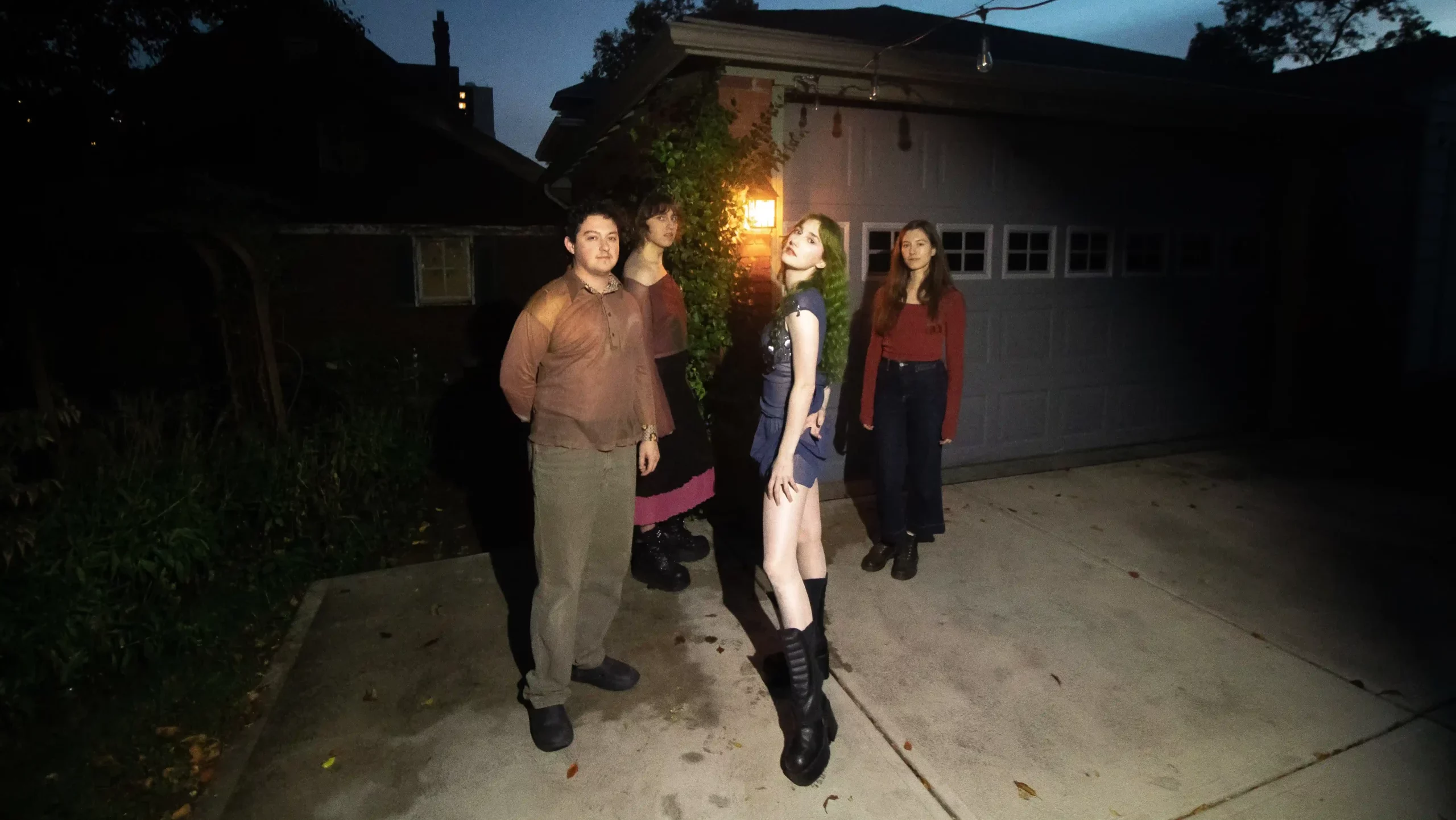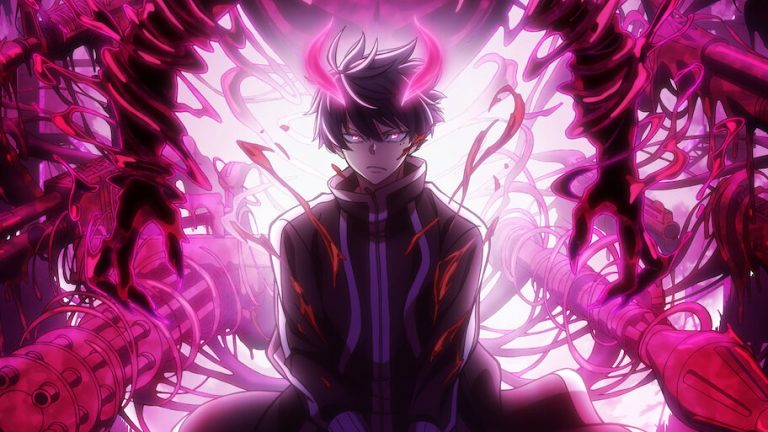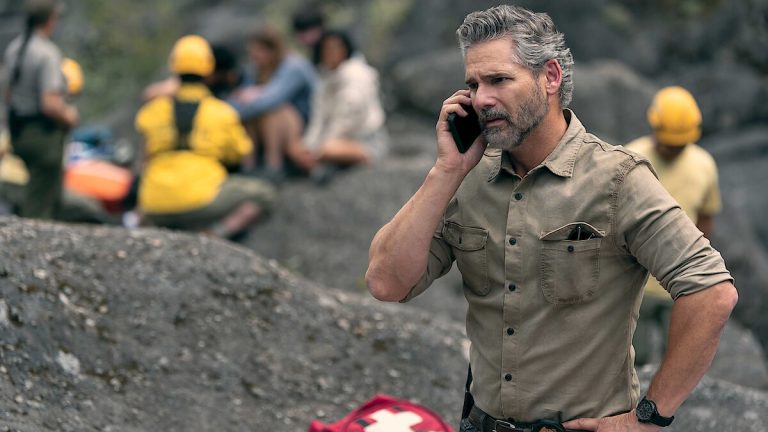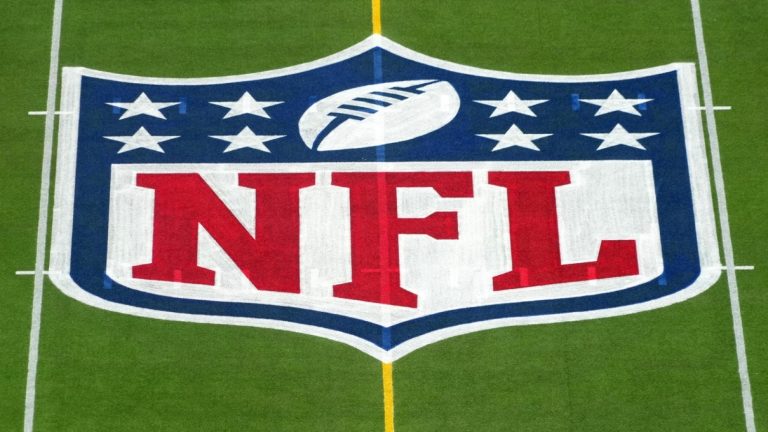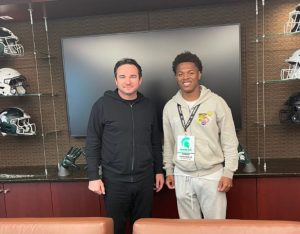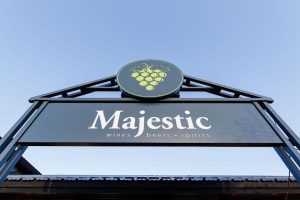It’s been five years since the Ophelias’ last album, Crocus, but its follow-up, Spring Grove, is by no means a post-pandemic document. Spencer Peppet’s lyrics burrow much deeper into past wounds, burdened by dreams that recur without end or explanation, blurring the line between the present moment and what’s clearly come to pass. When the titular Spring Grove cemetery comes up, it is in reference to the summer of 2014, yet as if neither person would now be the first to speak. “The feeling of you haunts me and I/ Know that I can recognize that,” she confesses on new single ‘Cicada’, and the whole record gives it shape even when the ghosts cease to follow. After collaborating with the band – Peppet, violinist Andrea Gutmann Fuentes, bassist Jo Shaffer, and drummer Mic Adams – on Crocus, Julien Baker took on the role of producer for the first time, helping to translate a collection of archival material into their most fully-realized and urgent collection yet. Spring Grove is no less turbulent or cathartic for how ornate and evocative it sounds, buzzing through each dug-up memory like only this specific group of people could do it justice. They may be stories now, but, rising to the surface, ring truer than ever.
We caught up with the Ophelias’ Spencer Peppet to talk about moth music, the recording process behind Spring Grove, her OCD diagnosis, and more.
The Ophelias’ website used to say your music is “inspired by nostalgia, nature, the Midwest, horror movies, and the moon.” Now, I’m sure a lot of people looking at it for the first time are asking you what “moth music” means.
Andrea came up with the term “moth music,” which stuck. We thought it was great and have used it since – that was when we were like 18. Now, I feel like I’ve finally come up with what it means – it only took me, like, 10 years. To me, “moth music” means cathartic, orchestral indie rock. That’s my definition now, but my bandmates would probably have other definitions as well. I just love the image of the moth – it’s something we’ve been returning to over and over. It’s so evocative. She plucked that out when we were teenagers, and it still feels applicable, which is crazy.
Spring Grove record began as a collection of demos you revisited in 2020 and recorded the following year. I wouldn’t call it nostalgic, but it’s definitely haunted by past relationships and experiences. Do they feel even more distant now, as you release these songs?
Yeah, sometimes it gets a little meta. It’ll be like, “Oh, now it’s me three years in the future, reflecting on a relationship I was reflecting on when I wrote the songs.” Doing interviews like this is always interesting because part of why I wrote them was to process those things and find some internal resolution around those conflicts or relationships. In the case of something like ‘Open Sky’, ‘Cumulonimbus’, ‘Parade’, – or ‘Forcefed’, even though that’s more about my relationship with myself – they acted as pretty effective processing tools.
I’m a journaler – I’ve journaled since first grade, and I have all of them. It’s a crazy thing to be able to be like, “I wonder what I was thinking in fifth grade,” and then open up the journal and be like, “That’s what I was thinking when I was in fifth grade.” That’s a big part of my life. It’s something I think about a lot: I have too many thoughts going on up here all the time; I get overwhelmed easily because there’s a lot of stuff happening. One way that I combat that is by putting it all on paper. And it’s almost like once it exists there, it no longer has to take up space in my brain anymore.
Writing these songs is kind of another form of that, where it’s like: Once you put it on the page, once you set it to music, once you record it at the recording studio, once you mix it, you master it, and you put artwork onto it… It no longer has to take up all of that space in my brain, and it’s very effective that way. It’s definitely interesting to be now, a couple years later, kind of coming back to those – they feel like stories now – coming back to those stories, those relationships, those conflicts, and being like, “Wow, you know, a lot of things have changed even in the past three years since we made this record.”
How does it feel different now compared to revisiting a journal entry?
I mean, I feel like the lyrics are prettier than what I write in my journals. [laughs] I think having songs like this, when I write them, they feel like they’re still mine, or like “about me” or my experiences, but then, almost immediately, they become something different because I get to invite my bandmates in. Step one of the communal thing is getting to work with my bandmates. They write all of their parts, and it becomes a group effort to even become a full song. And then, when you invite Julien and Cal [Lauber] – obviously, Julien produced, and then Calvin engineered and mixed, and JB also helped mix it – then we’ve got five people who are paying really close attention to these songs, who are writing parts, who are making suggestions. It becomes its own little entity or organism. And then you invite the label team in, your publicist, your booking agent, and they’re all working to make the record feel like a little world. They’re all included in the community, in the group. And then it comes out, and it goes to however many people hear it, and more and more people get included in the communal experience of a record.
Writing a journal stays for me, right? I try really hard not to journal like someone is gonna read it after I die. I try not to do that because I’m like, “I gotta just be in the moment and journal for real.” But music? The point of it is that eventually someone will hear it. It feels like a different experience, which I like and enjoy.
You also have a newsletter, and I’m curious where you draw the line between what you document there or in your journals and what might potentially become a reference point for a song or lyric.
I think that comes with time. Every once in a while, I’ll journal something and note to myself, “Oh, I should return to this.” Or I’ll have been thinking about something and want to include it in something more public. For example, on the Substack, which I’m trying to get better at – I feel like, weirdly, Substack is the scariest form of social media for me. You post a picture on Instagram, or you post a video on TikTok, and it’s a little bit like, “Look at me, I’m feeding the algorithm and playing the game.” But with Substack, it’s like, “Here’s what I really think.” So I’m trying to get better at just being consistent with that because I do really enjoy the format, but I feel like when I write something on Substack, I want it to feel substantive.
My journals are so inwardly focused – it’s the place where I allow myself to be self-centered and a little selfish. It’s a lot of like, “How do I feel in the moment?” versus something like Substack, where I want to think about big ideas or send a little letter about what I experienced. For example, I went to SXSW and tried to write a little day-by-day thing of what I experienced, just because I think that would be fun. But I don’t want to send something that feels unfinished or empty. You know what I mean? It’s a high bar to set for yourself, and I think I’m trying to allow myself to be a little more fluid with it, so we’ll see what happens there.
Tell me about the process of ranking the demos for Spring Grove as a band; I wonder whether this feeling of something being unfinished fed into it.
The ranked-choice voting was really fun, and I think we’ll probably do it again because it allowed everybody to be like, “Okay, these are my non-negotiables – we have to do these.” I think we did it color-coded. I made everybody a color-coded spreadsheet to fill out – Virgo behavior, for sure. [laughs] But it was like, “Your top three, we have to do these.” And I think everybody had, if not the same top three, a lot of crossover in the top three, and everybody’s top three made it into the record. And then you had like your yellows, if I’m remembering correctly, being like, “These are my other favorites.”
It’s fun to see what people pick, where their inclinations lie, and what ideas they have for things. One of my favorite things is when a song, like you were saying, feels unfinished, or I’m not sure about it, but my bandmates are like, “No, Spencer, we have to do this one,” and I kind of have to be like, “Okay, I believe you – we’ll try it out.” And a lot of times, those end up being some of my favorite songs on the record. For example, that happened with our last record, Crocus – ‘Sacrificial Lamb’ was one where I was like, “I don’t know, maybe that’s not my favorite song.” And then Andrea was like, “Hold on,” and sent me a demo later that night with like 50 violins on it. And I was like, “Oh, I get it!” Ends up being a single, ends up being a song people like, which is great.
Same thing happened on this record with ‘Crow’. I was not sure about that one, and Andrea was like, “No, we’re doing it.” And Mick was like, “I hear the vision.” That’s another piece where it goes communal again. That’s a moment where it’s no longer just mine, even though, sure, it’s about my experience seeing the sister of one of my exes at the Kenwood Mall. [laughs] But it’s no longer really about that.
You don’t have to name your top three choices, but would you say your favorites have changed now that the songs are done?
I can remember two of them, for sure, ‘Cumulonimbus’ and ‘Spring Grove’. So I’m like, “Okay, slay!” Lead single, title track – amazing. I can’t remember what my top third one was, but I do think there are some where I didn’t expect to love them as much as I do. ‘Parade’ is one that I feel like as soon as we got in the studio and started really fleshing it out, I was like, “Oh, this is cool.” Or ‘Shapes’, I think, has taken on a really lovely final form. I love Andrea’s harmonies, I love Mick playing the little drum machine, I love Jo doing the slide guitar – it takes on a new life and a new form. I’m generally just really proud of this record, so people will be like, “What’s your favorite song?”And I’m like, “…All of them,” you know? I just feel like this record is, personally, our best yet.
Lead single, title track, and the third song you mentioned, ‘Parade’, I feel like has a line that could be the record’s subtitle: “Empathy for all the hidden deep wounds.”
I appreciate that. It would be like, The Ophelias’ Spring Grove: Empathy for All the Hidden Wounds.
You tracked the album over ten days at Young Avenue Sound in Memphis. What do you remember about the days before and after going into the studio?
Days before – I think Mick and Jo and I practiced a bunch of times. Definitely a little nervous, like, “We don’t know what this is going to be.” We drove down – I think there was a storm on our way in, some kind of crazy weather thing, and I remember driving in through the storm, being like, “Here we go.” And then the first day that we got there, before we had even recorded at all, we went into the studio and met Cal, met JB, said hi, checked out the studio, and Julien came over – we had met in 2019, but met her in that context of like, “We’re here to make a record.” We hadn’t seen her in a long time because it had been quarantine, so first time seeing each other in a long time, she came to the house that we were staying at with her dog, Beans. And immediately her dog ran out the door, and we were like, “Beans is gone!” So she’s like running around trying to get her dog, and we were like, “Oh, okay.” Like, “This is going to be normal. This is going to be fun.” She’s a very down-to-earth person, very thoughtful and kind.
So that was right before, and then right after, I do think we listened to the rough mixes the entire drive back. [laughs] I think we were all like, “This record is crazy.” We were kind of just in shock, like “I can’t believe that that happened.”
How much did the mixes change over the next months or years? Were there a lot of tweaks to the record?
Not a ton. JB was super detail-oriented in her mix notes and would sometimes text and be like, “Hey, I think this needs a keys part. Can I add it?” And I’d be like, “Yeah, of course, go for it.” On ‘Crow’, right after the first chorus, there’s a little piano part, and she was like, “That has to be in there. I can hear it. Can I play it just at my house and add it?” And I was like, “Yeah, of course.” So now, whenever I hear that, I’m like, “Oh my god, hi!” Like, there she is, playing on her little keyboard. So I think it got very specific – it didn’t feel like there were big changes, but just very purposeful changes.
In addition to keys, vocals, and overall production, Julien Baker also plays additional guitar on two of the most ferocious songs, ‘Salome’ and ‘Sharpshooter’. What was recording those tracks like?
Yeah, she plays almost everything. She sings, plays guitar, banjo, keys/piano, synth, mix notes. She also studied, I think, music engineering and was definitely in the room adjusting the amps. She brought two suitcases full of pedals to build a pedalboard, which was crazy and sick. Those songs in particular were really fun to record. Something that I keep saying is – it does feel like we’ve been kind of reaching for this sound for years, trying to accomplish the way that these songs sound now, and it kind of feels like, “Holy shit, they sound the way that we had been hoping that things would sound.” It feels like the completion of a years-long aim.” And I think that a lot of that was just finally knowing what we wanted and being able to say that the guitar should sound so crunchy, or it should be more guitar-led, or have really forward bass, or keep the violin kind of on the lower end of the notes until we get to this one part. It feels like we locked in with what we wanted and were able to really do it for real.
You mentioned Jo’s bass playing – even on the quieter songs, it really stands out in how expressive and out there it is.
I love Jo’s bass parts. They’re so weird. They’re very evocative, very melodic. It’s not a lot of root notes. I think that Jo has a really wonderful sense of melody and counter-melody, and it feels like these songs would not be as interesting without her little basslines because they kind of peek forward and then pull back again. Every now and again, you’re like, “Oh, shit! What was that?”
Another detail I noticed is that Mia Berrin of Pom Pom Squad sings harmonies on ‘Vulture Tree’. How did that come about?
My bestie! She’s been my best friend since freshman year of college. I sang on her last record, and we’ve played many shows together. She’s the person that I go to for a lot of things. I sent her ‘Vulture Tree’, and she was like, “Spencer, I’m obsessed with this song. Can I sing harmonies on it?” I was like, “I would be honored.” She just did that at home and sent it to us. She did a beautiful job and I love having her on the record.
Spring Grove revolves around these very vivid and sometimes ambiguous confrontations, encounters, or memories of people you used to know in some way. Were there moments where you were wary of veering into what, on ‘Cicada’, you call “twisted brain theater”? Is that something that was on your mind?
I think at a certain point, it becomes no longer my business if the people – also, people will always try to guess which songs are about them, and they’re always wrong. [laughs] Maybe these ones are clearer. But I’m trying to acknowledge my role in everything. I think I tried to be fair and honest, at least about my side of the experience. Obviously, when you write something, you are going to be biased because it’s coming from one person, right? But I think I do my best to avoid cruelty, and I do my best to avoid anything that would, like, cause someone harm. But other than that, this is my life. These are my experiences, and if I share something that feels vulnerable, I just have to expect or anticipate that people will be cool about it. I think it’s been okay in the past, and I’m hoping, unless something insane happens, that everything will be cool in the future.
I think that’s part of being a songwriter, too. All the best songs I feel like are very specific, and it’s just part of being willing to share that part of your brain with people. A lot of my favorite songwriters are very specific in different ways. Bob Dylan, he’s writing all kinds of very personal, directed shit. Joanna Newsom is one of my favorites, and I feel like she’s writing very pointed things, but under this really beautiful set of ornate lyricism, where it can be hard to pick out what line is about who – but once you figure it out, you’re like, “Oh, I see how that connects.” I mean, Phoebe Bridgers is a great example where all of her stuff is so specific that you’re like, “This has to be from your life, from your brain.” Like, “You gave me fifteen hundred to see your hypnotherapist”? Slay. Love.
Another aspect of the songs that I love is how they often jump through time. On ‘Gardenia,’ you’re reflecting, and then it travels back to this specific memory in a very visceral way.
A lot of these songs are, even at the time, reflections, right? I think about ‘Gardenia’, even the opening line: “I saw your girlfriend move to Sweden.” Like, those two aren’t together anymore. That was years ago, even at the time of writing. A lot changes between writing a song, recording a song, putting a song out at that time. I’m writing about being 18, a freshman in college, new to New York City, and feeling insane. Every now and again there’s a worry: Are people going to get this? Do people understand the reflective nature of a lot of these songs, and that they’re not set in the present day? Or something like ‘Spring Grove’ is both from the perspective of my teenage self, reflecting on my teenage self, talking to my teenage self, her talking back to me, me speaking now. It’s not a very cut-and-dry “this is what it’s about.” I hold our listeners in pretty high esteem, so I think a lot of the time people do understand. But every now and again, I think, “Oh, man, this is vulnerable and kind of complicated.” It’s a weird thing to share so openly with people, but it’s good. I think it’s a good thing to do.
I know that you were diagnosed with OCD when you began working on these songs. Given that you were also journaling, how entangled did the creative process become with the way you perceived the world or yourself? Is there a connection there that you can articulate better now?
It’s so much processing. Oh my God, it’s just endless processing. That’s life, just processing. But getting that diagnosis made a lot of things make sense. I was like, “Oh, that’s what that is.” And it’s almost a relief just to have someone say, “This is an explanation. This is something we can give you tools for. We can talk about it.” It becomes way less of a I don’t know what’s going on. I feel crazy all the time. Maybe I’m evil. Maybe I’m losing my mind. OCD definitely thrives on mysticism and confusion. As soon as you name it, it gets boring – like, “Oh, that’s just a misguided coping thought.” I’m very grateful for that diagnosis, and I think it’s helped a lot of things get calmer in my life.
Writing these songs around that time, when I was still figuring out – What does this mean? How do I deal with this? What tools am I implementing? – a lot of the songs themselves are about pre-knowing what it was. Even in ‘Vulture Tree’, the line “Every car is a mirror now” – do you like Hop Along?
Oh, definitely.
There’s a line in ‘How Simple’: “I think I should stop checking myself out in the windows of cars.” I was listening to that song all the time, and I found myself on those walks – I’d walk around my neighborhood when I was back at my parents’ house in early 2021, maybe even earlier. I’d walk for hours in the middle of the night, stopping to look at myself in car after car. Then later, diagnosis: checking is a classic OCD thing. It’s not this mysterious thing – it’s just misguided coping. I can see where it lives in this record, which I think is cool and interesting. I didn’t want to focus on it too hard within press materials, because these songs have their own life now.
I can hear it sort of demystified in ‘Forcefed’. It’s introspective in a kind of literal, embodied way that feels different from other songs on the record. And then it lands on these horror-movie lines: “I’m eating my organs and I will let them sustain me.”
It’s funny you say “embodied” – it feels very physical, very visceral that way. That’s one where the subject matter often gets talked about in reductive, feminized ways, and my goal was to show how gross it is: lift up the rock, show the worms underneath.
More broadly, how do you see the relationship between horror and the band as a personal outlet?
Jo is a filmmaker – she’s made two horror movies so far – so she’s very immersed in that world, very attuned to that sense of tension and release. That’s something I’m inspired by because of her: building tension in a song or music video, then releasing it. There’s a lot you can take from filmmaking as a lyricist or musician. Jo also has this great platform where she talks about how music videos are the last form of experimental filmmaking available to the mainstream. Filmmaking in general is a big part of The Ophelias – we’re a very visual band, and that ties heavily into our world.
Speaking of release, ‘Shapes’ feels like a very intentional resolution for the album. Was it one of the last songs written for the record?
I can’t remember. I have no idea. I know ‘Cumulonimbus’ was one of the first. Actually, I think ‘Open Sky’ was the last one. It’s funny – I do feel a little parallel thematically between the opening and closing, where it’s like, you can take it how you want to take it, maybe someday this will all be good. And then at the very end, it’s like, “I’ll let things pass.” ‘Open Sky’ is maybe a little less chill about it all, but I do feel like it has that undercurrent of: I genuinely mean good for you. I wish ‘Shapes’ was the last one – that would’ve been great if it tied up perfectly.
Do you feel better equipped now to let things pass?
See, maybe my curse is that’s not my strong suit. I think it makes me a good writer, though. I always joke that we make music for people who can’t let anything go, ever. I’m getting better at it, but I do think maybe my lot in life is to be a reminiscer.
Music for moths and people who can’t…
Let anything go!
This interview has been edited and condensed for clarity and length.
The Ophelias’ Spring Grove is out April 4 via Get Better Records.
